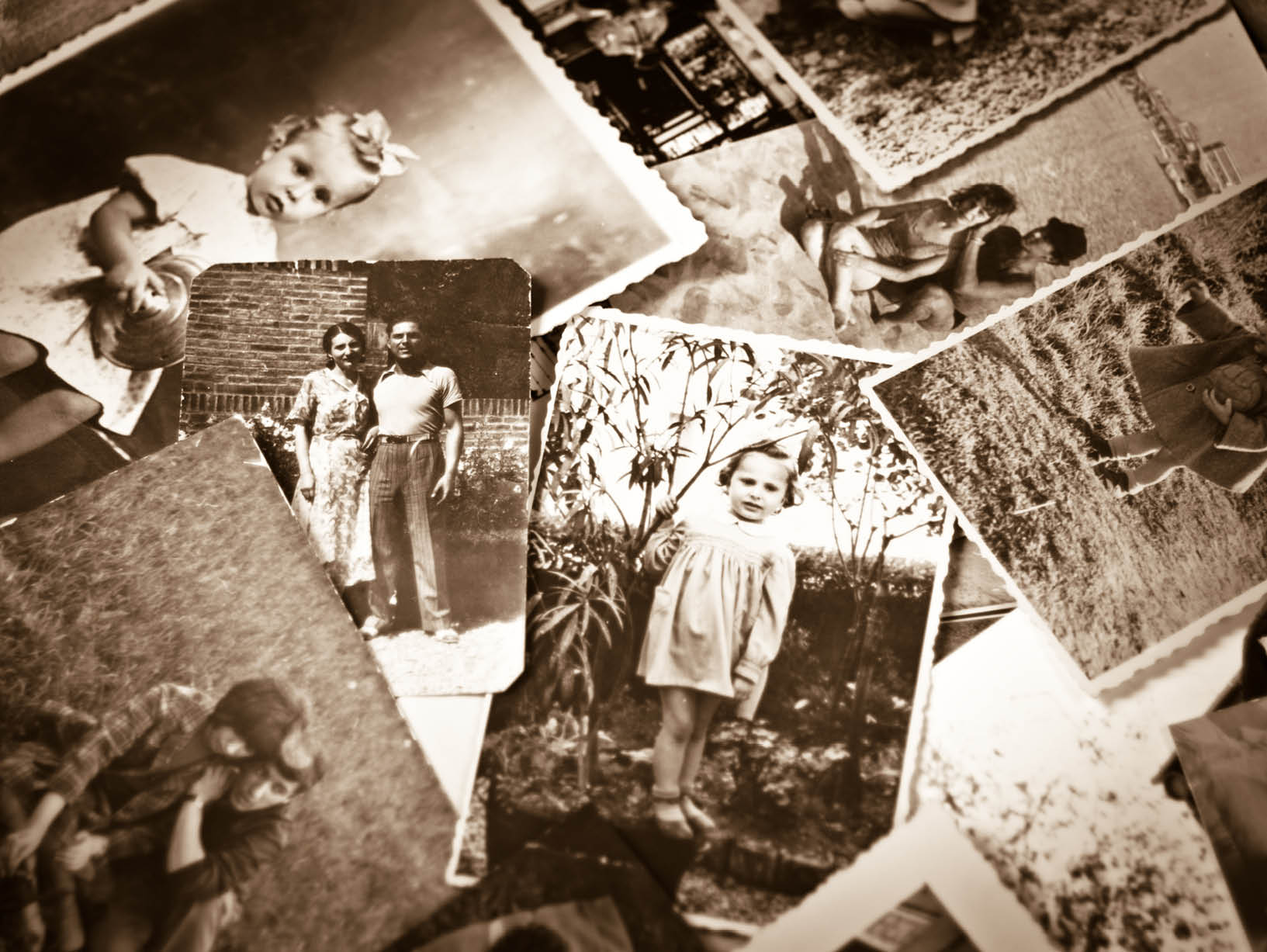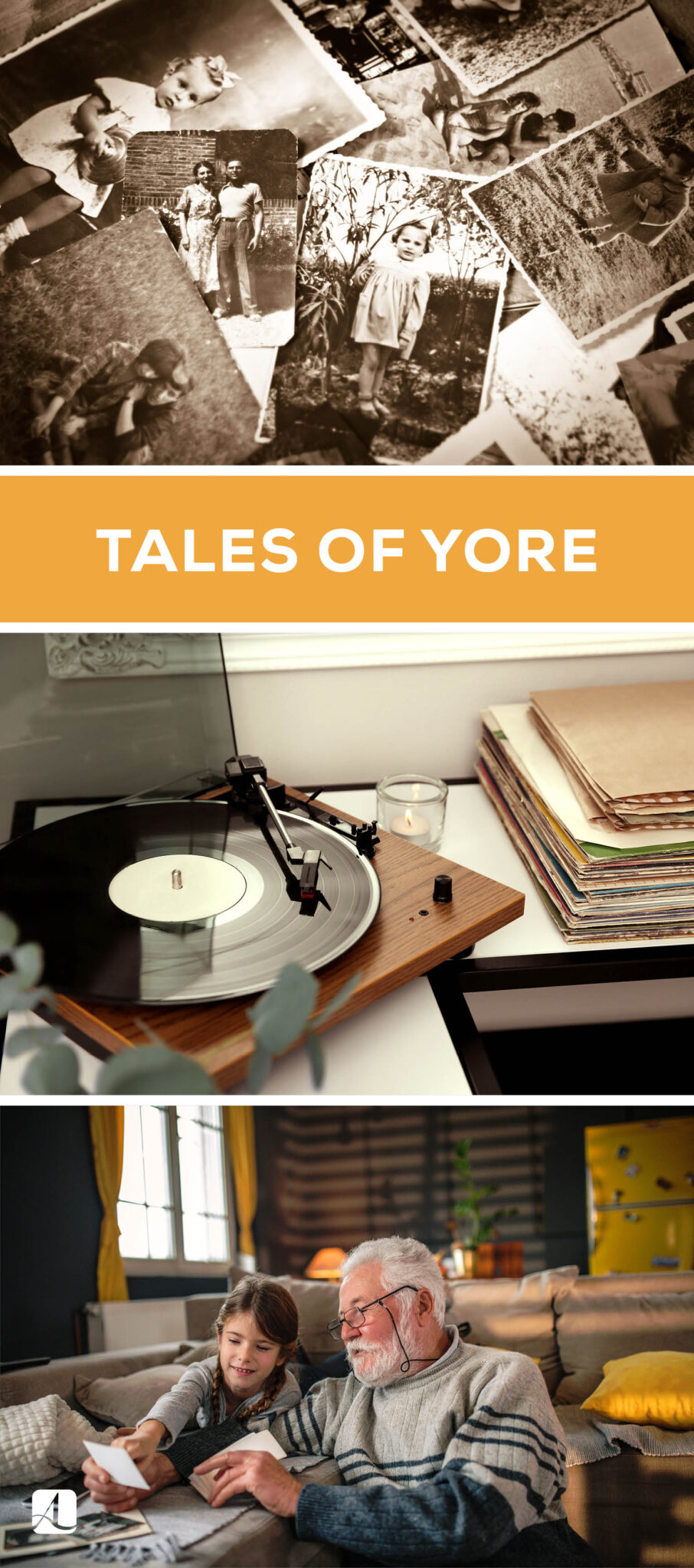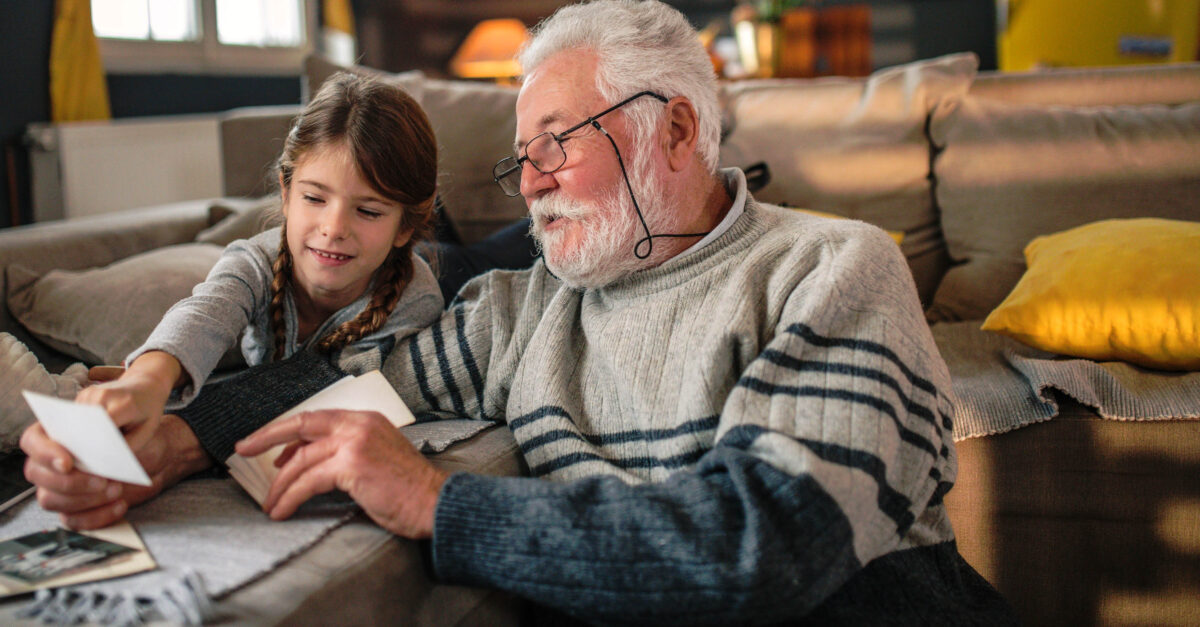Tales of Yore
If you want to permanently preserve a loved one’s legacy, there’s nothing like documenting their very words. Here’s how to go about it.
I used to love listening to my dad tell stories of the past. The experiences and events that shaped his life were so fascinating to me. My children had the good fortune of hearing his life’s adventures, often resulting in heavy belly laughter. And because he was a bit of an eccentric, the delivery of his stories was never dull, and everyone who had the privilege of listening to him never walked away unamused.
I knew there were still so many more stories to be told and often wondered how much longer he would be around for everyone to enjoy his anecdotes and share his wonderful tales of yore. In hindsight, I wish I had recorded him telling his tales. Documenting a loved one in their own words is a remarkable way to honor their legacy, recount their life, and allow future generations to watch and hear them.

Choosing a format
It’s never too soon to start preserving your or your loved one’s memories. And whether you’re capturing them through video, audio recording, or journaling, as you take this trip down memory lane, it will become a timeless family treasure. These tips can help you decide which format will be the best way to document your memories.
Videotaping and recording
Videotaping is often the best option for capturing your interviewee’s authentic self—it allows for facial expressions, voice tone and inflection, overall personality, and demeanor. But if they are not comfortable being in front of a camera, an audio recording can still be an effective way of documenting the stories to be shared.
Writing or journaling
Some people prefer to preserve their memories by writing in a journal, reflecting and transcribing their recollections at their own pace. An older person may need a rest from writing as it can become physically or emotionally tiresome. Although it’s not quite the same as seeing your loved one’s face on video or hearing their voice through an audio recording, written memories can also be meaningful. This format can also be easily copied and placed in a scrapbook or memory box for safekeeping.

Prompting memories
Because memories fade into the background, it can sometimes be difficult to recollect past events fully, but there are certain strategies you can use to prompt memories, regardless of the format you choose.
Make a list of questions
Prepare questions ahead of time, which can reduce the stress of trying to remember events on the spot.
Ask open-ended questions
Avoid questions that garner yes-or-no answers. Begin with how, when, or why, and ask follow-up questions to gather more detailed information.
Peruse through old photo albums
Gazing at past photos is always a great way to prompt memories. As you look through these timeless pictures, be sure to ask questions about the place, time, and people in the photographs to help inspire your loved one to retell the events that correlated with them.
Play background music
Music can often jog one’s memory, so consider quietly playing music from the era of the person being interviewed.

Interviewing tips
Whether you’re interviewing your loved one or asking them to do a self-recorded interview, make sure the environment is comfortable and relaxing.
Provide proper lighting
The room should be well-lit and the lights should not be shining in the interviewee’s eyes if it’s a videotaping session. It’s generally best to conduct these types of interviews when the sun is lower during the early morning or evening hours.
Record in segments
You may be able to complete the recording session all in one sitting. However, if you are interviewing an older parent or relative, it may be best to keep the interview to no more than one hour, pause, and then reconvene later.
Avoid distractions
If you have decided to play background music, be sure to keep the volume low. Also, turn off all televisions and minimize the number of people in the room.
Categorizing questions
Break down the interview questions into categories. Keep the conversation as relaxed and natural as possible to help make it easier for recollecting past stories and events. Here are some examples of questions you may want to ask:
Legacy
- What life lessons have had the most profound impact on you, and what lessons do you want to pass on to future generations?
- Who inspired you the most and why?
- What accomplishment are you proudest of?
- Who in your life helped shape the person you are today?
Family & relationships
- How did you and your spouse meet, and where and when was your first date?
- What was your favorite adventure that you did together?
- What family traditions did you enjoy most as a child?
- Is there a particular event or story that sticks out most in your mind?
Historical events
- What historical events did you experience, and how did they impact you?
- What was the social, political, and economic climate at the time?
- How did those events make you feel?
There are many ways to document a life story. Hence, as you think about a cherished older person in your life, consider the type of story you want to document. Websites like Storyworth, Storii, and Desktop Documentaries are great tools to help create meaningful life stories. Encourage younger people to get involved and ask questions—you never know what will be revealed! It’s also a perfect opportunity to make this into a fun family project, bring the family together, and connect through the power of storytelling while creating a priceless family heirloom.






















